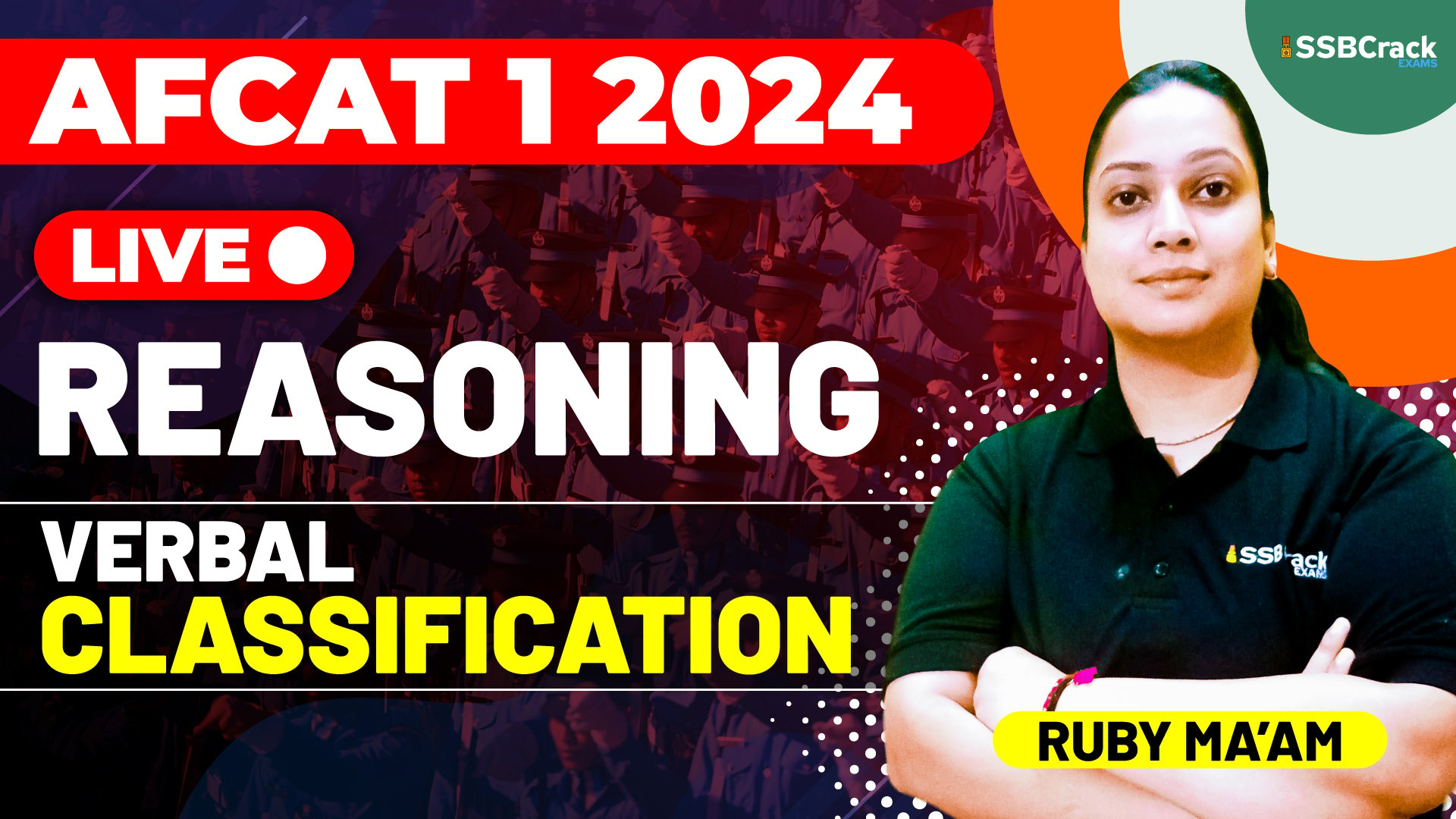Air Force Common Admission Test (AFCAT) is a highly competitive examination that assesses candidates aspiring to join the Indian Air Force. Verbal Classification Reasoning is a crucial component of the AFCAT exam, designed to evaluate a candidate’s logical reasoning and analytical skills. Mastering this section is essential for achieving success in the overall examination. In this article, we will delve into the significance of verbal classification reasoning in AFCAT and provide valuable tips to enhance your performance in this section.
Understanding Verbal Classification Reasoning:
Verbal Classification Reasoning involves identifying relationships and patterns among words and grouping them based on shared characteristics. The objective is to recognize the odd word or set of words that do not fit into a given category. This tests a candidate’s ability to think critically, analyze information, and make logical connections.
Significance of Verbal Classification in AFCAT:
- Analytical Skills: Verbal Classification tests your ability to analyze and discern patterns quickly. This skill is crucial for officers in the Indian Air Force, where split-second decision-making is often required.
- Logical Reasoning: The AFCAT exam aims to assess your logical reasoning abilities. Verbal Classification questions help evaluate your capability to identify relationships and make reasoned decisions.
- Problem-Solving Aptitude: Military officers need to be adept problem-solvers. Mastering verbal classification reasoning equips you with the skills necessary to approach challenges methodically.
Tips to Excel in Verbal Classification Reasoning:
- Build a Strong Vocabulary: A robust vocabulary is essential for understanding the nuances of words and their relationships. Read extensively, and make a habit of learning new words regularly.
- Practice Regularly: Familiarize yourself with different types of verbal classification questions by practicing regularly. Solve sample papers, previous years’ question papers, and take mock tests to enhance your speed and accuracy.
- Identify Relationships: Develop the ability to recognize relationships between words. Understand synonyms, antonyms, and various word associations to identify the odd one out in a given set.
- Create Mental Categories: When faced with a set of words, create mental categories or groups based on similarities. This can help you quickly identify the word that does not belong to a particular category.
- Time Management: Verbal Classification is a time-sensitive section. Practice time management to ensure that you can answer questions within the stipulated time. Prioritize questions that you find easier and come back to the more challenging ones if needed.
- Review Incorrect Answers: After practicing, review the questions you answered incorrectly. Understand the logic behind the correct answers and learn from your mistakes to improve your performance.
- Stay Calm and Focused: During the exam, remain calm and focused. Avoid getting stuck on a single question for too long. If a question seems too challenging, move on to the next one and come back if time permits.
Conclusion:
Verbal Classification Reasoning is a skill that can be honed with consistent practice and a strategic approach. Aspiring AFCAT candidates must dedicate time to master this section, as it plays a significant role in determining success in the overall examination. By building a strong vocabulary, practicing regularly, and honing your analytical skills, you can boost your confidence and perform exceptionally well in the verbal classification reasoning section of AFCAT.







